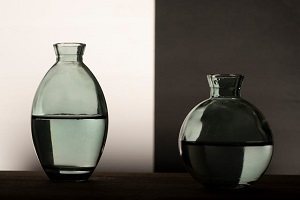Can Saline Water be Used to Wash the Penis for Prostatitis?
Saline water generally refers to physiological saline, a 0.9% sodium chloride solution with an osmotic pressure equivalent to that of extracellular fluid in the human body. Saline can be categorized as isotonic or hypertonic depending on its salt concentration.

Due to its high osmotic pressure, hypertonic saline relieves swelling and pain caused by insect bites. It can also rehydrate dehydrated cells, accelerate recovery, alleviate post-exercise fatigue, and maintain electrolyte balance.
Moreover, saline water has demonstrated sound therapeutic effects for common conditions such as oral ulcers, throat swelling, wound infections, and bacterial athlete's foot. Drinking saline water in moderate amounts can promote gastrointestinal peristalsis, aid in eliminating residual toxins from the body, and prevent constipation.
Prostatitis is a common male disease that causes significant distress to patients. It refers to pelvic area pain or discomfort, abnormal urination, and sexual dysfunction caused by a pathogenic bacterial infection or other non-infectious stimuli affecting the prostate gland. Common symptoms include frequent urination, urgency, dysuria, incomplete urination, and pain in the perineum or pubic bone area.
Many patients seek various methods to alleviate symptoms, and a common question is: Can saline water be used to wash the penis for prostatitis?
In theory, washing the penis with saline water may provide some help for patients with prostatitis. By cleaning the penis, bacterial growth and reproduction may be reduced, potentially alleviating symptoms of prostatitis.
When washing the penis, first moisten it with warm water, then pour a moderate amount of physiological saline onto your hand or a clean towel. Gently wipe the penis, being careful to use gentle motions and avoiding vigorous rubbing to prevent damage to the penile skin. Pay particular attention to cleaning under the foreskin and the glans, as these areas can harbor dirt and bacteria.
Generally, washing 1-2 times daily is sufficient. Excessive washing may disrupt the average bacterial balance on the penile skin, leading to issues like dryness and itching.
It's crucial to strictly use physiological saline and avoid preparing saline water alone, as self-prepared saline may have too high or too low concentrations. High-concentration saline may irritate and damage penile skin, causing discomfort such as pain and swelling, while low-concentration saline may not achieve the desired cleaning and antibacterial effects.
This method should not be used for acute prostatitis patients, as it may exacerbate inflammatory reactions. For chronic prostatitis, sitz baths with warm saline can improve microcirculation around the prostate gland, promoting the absorption and dissipation of inflammation.
While saline water has some cleansing and antibacterial effects, its effectiveness is limited regarding the root causes of prostatitis, such as infection or immune abnormalities. Some individuals may be allergic to saline water, experiencing symptoms like skin redness, swelling, and itching. If allergic reactions occur, discontinue use immediately and seek medical attention promptly.
Overall, saline water washing of the penis can only serve as an adjunctive treatment method and cannot replace proper medical treatment.
If symptoms such as skin redness, swelling, itching, or pain occur during washing, discontinue washing immediately and seek medical attention promptly. Additionally, due to individual variations in disease severity and physical condition, it is advisable to consult a doctor before undertaking any self-care measures.
The treatment of prostatitis requires comprehensive management based on its cause and severity. Patients should seek medical attention promptly and follow their doctor's advice for treatment.
Upon experiencing symptoms of prostatitis, timely consultation at a reputable hospital, relevant examinations, and definitive diagnosis are recommended. Subsequently, treatment should be initiated according to the doctor's recommendations.
Treatment methods may include medication, physical therapy, and surgical intervention. Specifically, the Chinese herbal medicine Diuretic and Anti-inflammatory Pill has effects such as clearing heat and detoxifying, promoting blood circulation and removing blood stasis, relieving pain, and promoting diuresis. It can eliminate inflammatory infections, improve local blood circulation, and, with consistent use, cure chronic prostatitis!
Recommend readings:
How Chronic Prostatitis Patients Can Stay Cool During Summer



